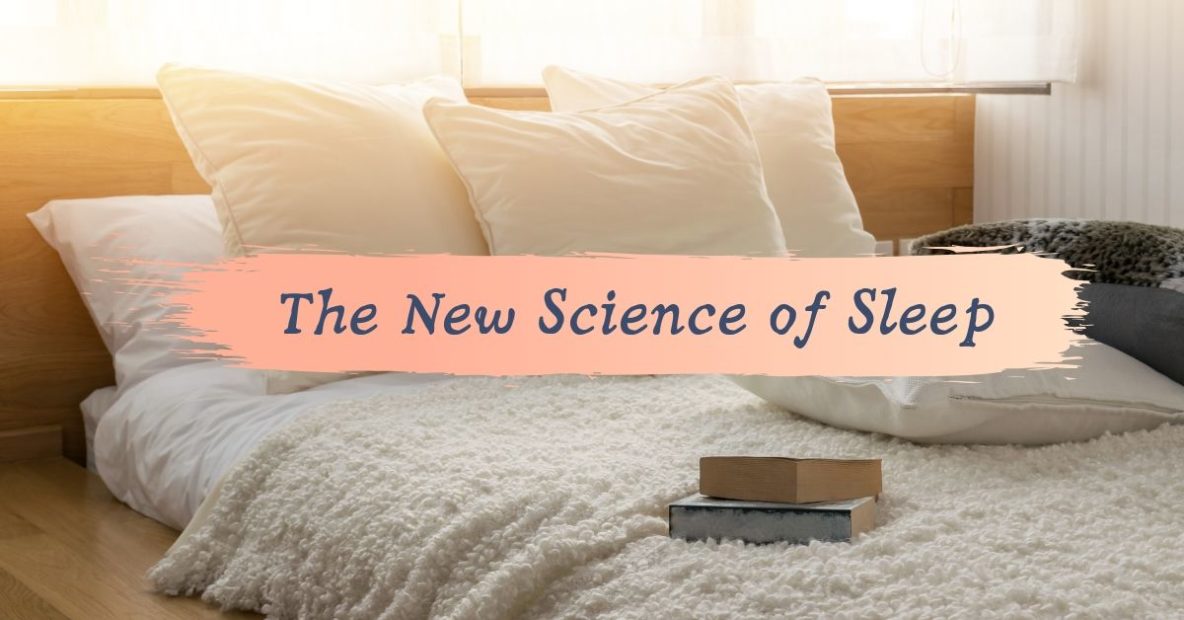The New Science of Sleep

- A Promising Paradigm Shift: New Research Challenges the CPAP-First Approach to OSA Treatment - September 5, 2023
- Understanding Sleep Meditation Techniques - July 30, 2021
- How Online Learning Has Affected Sleep for Students - July 13, 2021
Are you sleeping well at night? Do you wake up feeling well rested and ready to face another day? If your answer is no, you’re one of millions of Americans struggling to sleep. Our lives have gotten busier with each passing year, and compared to a hundred years ago, we’re sleeping worse than ever before. Modern schedules, stressors, and technology are all taking a toll on our sleep, and we need a new science of sleep to give us a new perspective, and restore quality sleep.
Why is Sleep So Important?
If you’ve sacrificed sleep for your 6am run, or stayed up late binge watching your favorite show, you haven’t been prioritizing sleep. Our popular mindset is that adults don’t need very much sleep, and that it’s better to push ourselves to stay awake and accomplish more. Without sleep, we can’t accomplish very much, and researchers and doctors are adamant that adults need between 7 to 9 hours per night. Consistently sleeping less than 7 hours will have severe repercussions on your emotional, mental, and physical health. With poor sleep, you’re more likely to suffer from diabetes, hypertension and obesity, and suffer from low energy levels and reduced muscle mass. You’ll feel more anxiety, stress, irritability, moodiness, and even depression.
Sleep Deprivation and Insomnia
Do you fall asleep as soon as you climb into bed? You may think this is the mark of a good sleeper, but the opposite is probably true. If you fall asleep the moment you allow yourself to rest, it’s a sign that you’re likely sleep deprived and not getting enough sleep. Insomnia can be even more stressful than sleep deprivation, and laying awake wanting to sleep can induce anxiety. The anxiety makes it harder to sleep, and this can be a hard cycle to break. Many people rely on sleep aids to get to sleep, and rely on coffee to stay awake during the day, further disrupting their natural sleeping patterns.
Healthy Sleep Habits
To get a good night’s sleep, adopt some healthy sleep habits. Keep your room cool and dark, and don’t watch TV or use a computer in your room. Avoid caffeine or heavy snacks before bed, and make sure your phone has a red-light filter set during the evening. If you wake up during the night and feel stressed that you can’t get back to sleep, get up! Go to a different room, read a book, stretch, or do another activity you enjoy. You can also write down whatever is bothering you, and getting those worries out of your head and onto a piece of paper can help you go back to sleep. Staying in bed will create a conditioned response, and you’ll start to wake up stressed in the middle of every night.
Stick to a sleep routine, and go to bed and get up at the same time every day, even on the weekends. You might be tired during the first couple weeks of the routine, but soon your sleep clock will reset, and you’ll be sleeping more soundly every night and waking up before your alarm in the mornings. If you’re experiencing a bout of insomnia, don’t change your sleep schedule, sleep in, or take a nap. You’ll be more tired for a few days, but ultimately your body clock will get back on track much faster if you keep it consistent.
If you’re feeling very tired and stressed during the day, a quick power nap could go a long way in restoring your mood, and giving you a burst of energy. Sleep between 15-30 minutes, but be sure you don’t sleep any longer, as this will leave you groggy, and disrupt your sleep schedule.
Sound Sleep Medical
Are you worried that you’re not getting enough sleep? Do you suffer from sleep deprivation, insomnia, or sleep apnea? Whatever the case may be, visit us at Sound Sleep Medical to talk about your sleep, and learn more about the new science around sleep. We’ll help you find out what’s keeping your awake, and what you can do about it. Whether you need to make changes to your sleep habits, reset your sleep clock, get more hours of sleep, or have better quality of sleep, we’ll help you find out exactly what you need to get a great night’s sleep every night.
